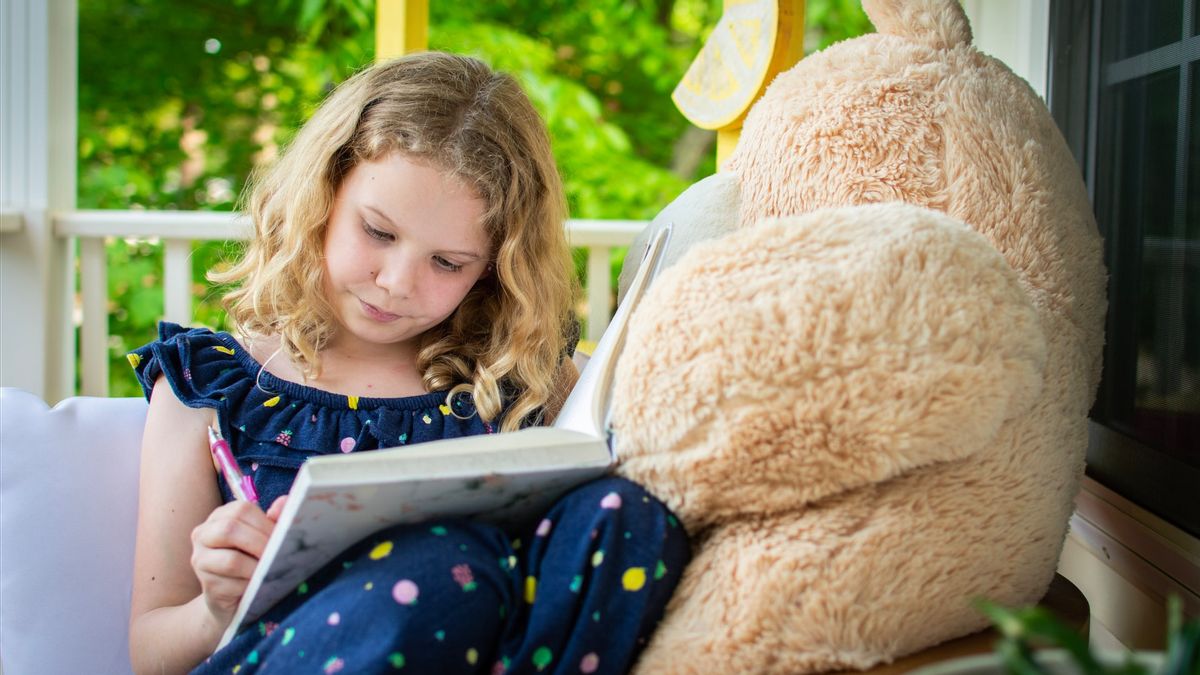YOGYAKARTA – A daily journal, also known as a diary, has many benefits when done by children. In addition to practicing language skills, writing a daily journal also builds awareness from an early age to manage emotions.
Writing a daily journal, reported by Verywell Family, Thursday, June 2, is a good activity for children. Journaling needs can be adapted to the interests of the children. For example, it can be used to write down gratitude, exercise, diet, emotions, dreams, and ideas or even future plans.
Some schools, or formal education, make a schedule for children to write about impressions or how they feel when following certain subjects. For example, when experiencing problems in math lessons, teachers can finally track down the child's difficulties and try out new methods to learn more effectively.

In everyday life, writing a daily journal, can help children write down their needs that are difficult to express verbally. By journaling, children can learn and identify many things. It can even help him to make important decisions, such as in organizational or emotional situations.
Writing a diary, it's okay not to do it every day. But it is necessary to build an agreement between the child and the parent to read it. That way, they can still have privacy and can express all their thoughts.
Building emotional intelligence can also be started by writing a journal. For example, parents can give directions about things that make him afraid, angry, sad, regretful, and other challenging expressions.
There is also a type of daily journaling as a storytelling tool. Journals can be a place to learn how much information from a story is told and choose the right words to write a story. This type of guided journal also trains children to explore language. Starting from enriching diction or word choice, to learning to recognize punctuation to grammar.
In addition, by keeping a journal, children can also be more interested in reading. Usually, they will also identify how to tell a story and imitate the storyline of what they read.
If it's a feeling journal, it's a bit different from a guided journal. Feeling journals are a great way to help your child build an emotional vocabulary. You can accompany younger children with a picture or an emotion table for an event that they have experienced.
That's the benefit of journaling for children. Besides being useful for practicing language skills, they are also better at recognizing the right words to describe the emotions they feel. That way, they know how to manage it and don't choose other negative ways to express emotions.
The English, Chinese, Japanese, Arabic, and French versions are automatically generated by the AI. So there may still be inaccuracies in translating, please always see Indonesian as our main language. (system supported by DigitalSiber.id)













